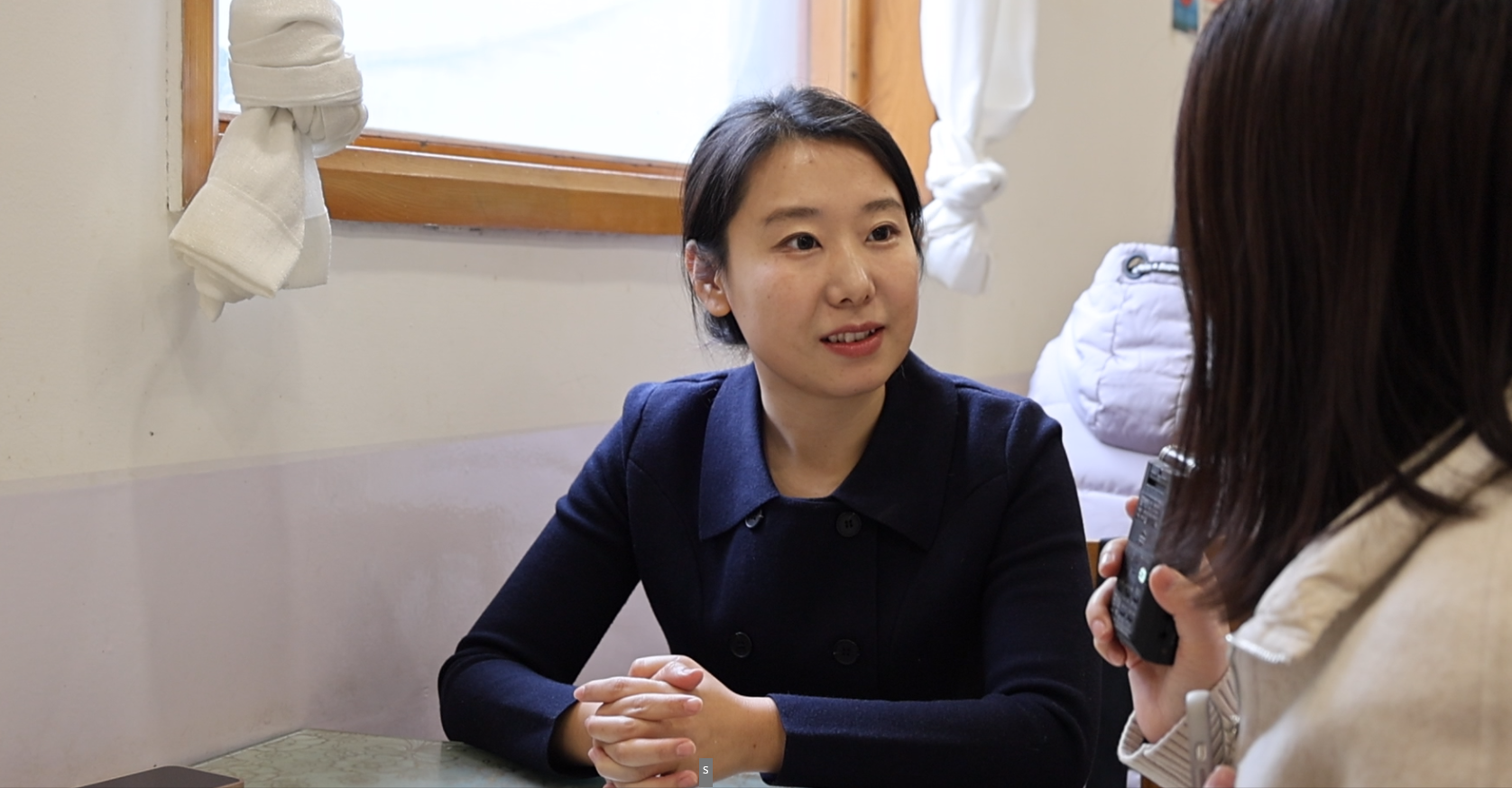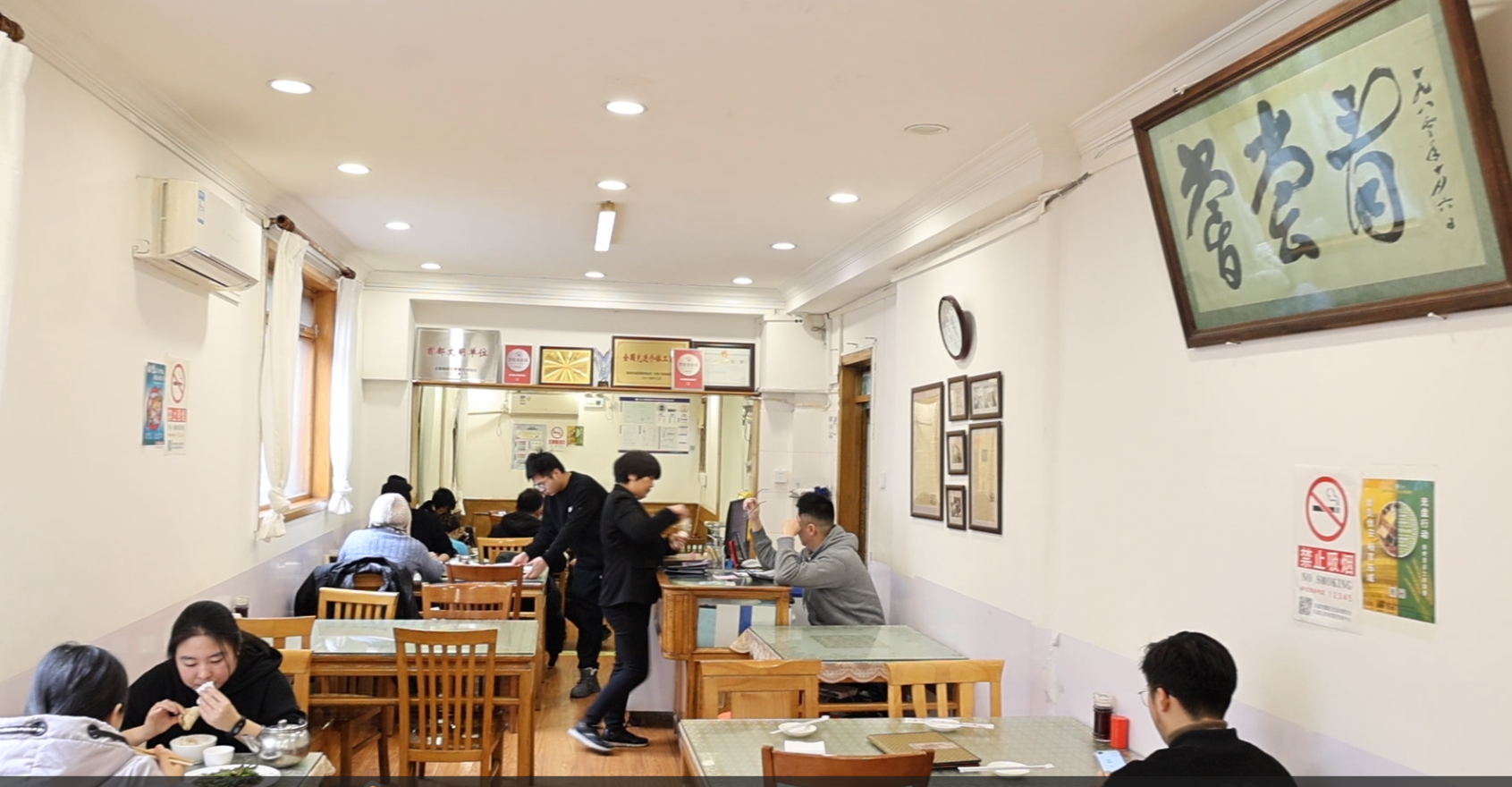LATEST INSIGHTS
Your Present Location: LATEST INSIGHTSLiu Zhiqin: Thriving for 43 years: China's first private restaurant after reform and opening up
Source: CGTN Published: 2023-12-18

Today, we have a special report marking the 45th anniversary of China’s reform and opening up.
The country’s thriving private businesses stand as a symbol of its economic success, and today we bring you the story of the first privately-owned restaurant in China.
Zhou Fang visited Yuebin Restaurant in eastern Beijing and spoke with the third generation operator about their family stories over the past few decades.
The restaurant Yuebin, which means "delight the guests", was opened in Dongcheng District in Beijing two years after the country began its reform and opening. Last year, 34-year old Guo Hua became the third generation operator of Yuebin.

Third generation operator of Yuebin Restaurant Guo Hua tells her family stories related to the restaurant. [Photo: CGTN Radio]
"Back then, our family was really struggling. My grandparents had five kids, and we were all depending on my grandpa's paycheck. They figured, since they were good at cooking, maybe they could use their skills to make life better for the family."
Guo's grandpa earned slightly more than 30 yuan, or around 4 U.S. dollars, per month, while the national average at that time was around 67 yuan. In 1980, starting a private restaurant was unheard of, and the authorities were very cautious. With the persistence of her grandmother, the authorities finally agreed. They even helped Guo’s family get a loan of 500 yuan from the bank.
"The restaurant was very popular. At first, we could only seat four tables and serve around fourteen to fifteen customers each day. Most of our diners had to book a month in advance."
Shortly after opening, Yuebin Restaurant attracted widespread attention in China, including from many foreign media outlets. The United Press International reported that "In the heart of China, delicious food and private business are reviving in narrow alleys.”
On the first day of opening, the restaurant earned nearly 40 yuan, which was more than Guo’s grandpa’s monthly salary. In a few years, Guo’s grandparents became wealthy with savings of ten thousand yuan. The restaurant even attracted embassy staff from foreign countries.
Liu Zhiqin is a senior fellow of the Chongyang Institute for Financial studies at Renmin University of China. He says he still remembers the crowded scene when dining at the restaurant. He also says the country’s reform policy has brought substantial changes to people’s thoughts and lives.

A picture shows the inside of Yuebin Restaurant located in Beijing's Dongcheng District. [Photo: CGTN Radio]
"At that time, many people were very strange to the word private, private enterprise or private economy. So that's why I say that the reform and opening up policy make the people change in other way, to think about their way of working, of life. They changed the idea. The second is that the people became more confident ,with great confidence for the future.”
With the restaurant's thriving business and increasing revenue, the family opened another restaurant nearby in 1992, called Yuexian.
"Our family went from being poor to owning properties for all five members of my father's generation. They got married and had children. All of us kids went to college, and some even went abroad, thanks to our restaurants".
Guo Hua worked at a company for a few years after graduating from college in 2011. Her grandmother then persuaded her to come back and work at the restaurants. The total area of the two restaurants is now around 220 square meters, four times the original size.
Guo says they now have customers from four different age groups.
"I've been coming here since it opened over 40 years ago, and it hasn't changed a bit. It was crowded back then, just like it is now."
"We ordered the gluten cabbage. I considered trying to make it at home, but it's not as simple as it looks."
Guo says preserving the original flavors has been their focus for decades.
"I'm really happy with how things are going. The customer flow in our restaurants is pretty steady. I hope to keep making delicious food and work towards making it a century-old restaurant in the alley."
Back in 1980, Yuebin Restaurant was only one of less than 10,000 private businesses in China. They accounted for less than 1% of the market entities. As of the end of last year, there were nearly 114 million registered private businesses nationwide, making up around two thirds of the market entities.
Senior fellow Liu Zhiqin at Renmin University says the private sector has contributed a lot to the country’s progress and modernization.
"Private economy contributed at least 50 percent of the national GDP, 60 percent of the tax income and also 70 percent of employment, 80 percent of innovation is contributed by the private companies. I had added 100 percent contribution by private economy, that is the stabilization of the society, because I think the private economy developed very well, very coordinated. That makes our society very stable.”
Over the past few years, governments at different levels have been launching policies to support private businesses. According to Guo, they now have an easier access to financial products and services.























































































 京公网安备 11010802037854号
京公网安备 11010802037854号





